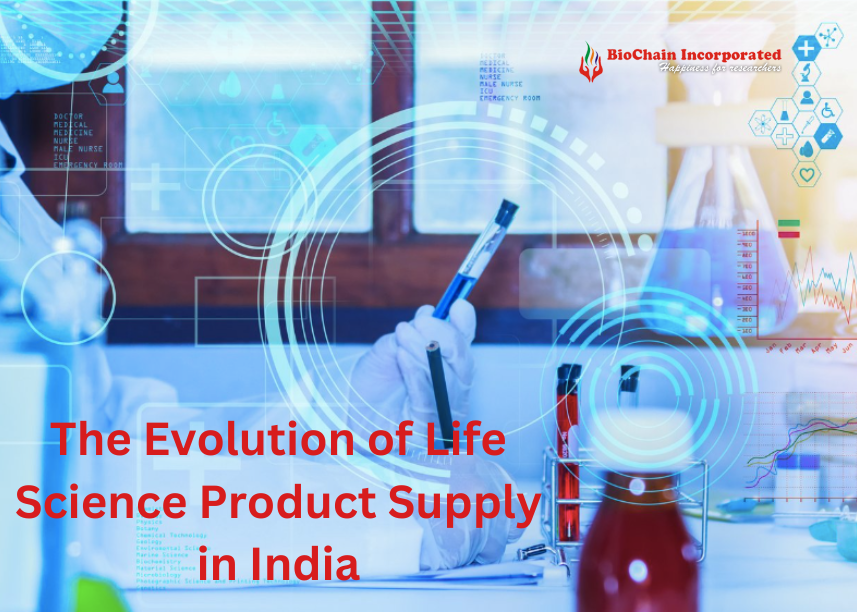Challenges Faced by Monoclonal Antibody Manufacturers in India and How They Overcome Them
Monoclonal antibody manufacturers in India face challenges like regulatory hurdles, high costs, and complex production. They overcome these through advanced technologies, global partnerships, streamlined processes, and government support, enhancing efficiency and maintaining competitive pricing. Biochain is heading towards one of the leading monoclonal antibody manufacturers in India.
Key Challenges Faced by Monoclonal Antibody Manufacturers in India
- Strict regulatory requirements and compliance standards.
- High manufacturing and operational costs.
- Complex and time-consuming manufacturing processes time.
- Difficulty in maintaining product quality.
- Access to advanced bioprocessing technologies.
- Distribution and cold chain distribution challenges.
- Intellectual property and patent concerns.
- Lack of skilled workers in specialized biotechnology.
- Strong competition from international manufacturers.
- Limited government funding and support for R&D projects.
High Production Costs and Limited Access to Advanced Technologies
High manufacturing costs and limited access to advanced technologies are major barriers for monoclonal antibody manufacturers in India. The complex nature of mAb production requires complex bioprocessing equipment that is expensive to acquire and maintain. In addition, many manufacturers find it difficult to adopt advanced technologies due to the large investment, which affects their ability to make accurate decisions. This lack of access often increases administrative costs and increases the cost of monoclonal antibodies, making it a challenge for Indian manufacturers to compete with global players with better technological infrastructure.
Regulatory Challenges in Monoclonal Antibody Manufacturing
The monoclonal antibody manufacturers in india face regulatory challenges, including complex approval processes and adherence to international quality standards. These regulations often delay product launches, increase costs and require constant monitoring to ensure safety and effectiveness.
Addressing Quality Control and Consistency Issues
Addressing quality and consistency issues is critical to the development of monoclonal antibodies, as small differences can affect the efficacy and safety of the products. Manufacturers implement quality assurance procedures, including periodic testing at each stage of production to ensure consistency. Advanced biotechnologies and automated technologies help reduce human error and improve consistency across batches. By focusing on performance monitoring and using data analytics, companies can detect problems early and maintain the high quality expected in monoclonal antibody products.
Overcoming Supply Chain Disruptions and Raw Material Shortages
Monoclonal antibody manufacturers are overcoming supply chain problems and resource shortages by diversifying suppliers, maintaining strategic inventory and adjusting procurement processes. They also use local procurement strategies to reduce dependence on international suppliers and ensure business continuity.
Skilled Workforce Shortage and the Need for Specialized Training
The lack of skilled workers to make monoclonal antibodies increases the need for specialized training. Manufacturers are investing in skills programs and partnering with academic institutions to develop talent capable of managing biomedical processes and quality control.
Managing R&D Challenges in Monoclonal Antibody Development
- High research and development costs
- Long time for product discovery and clinical trials
- Difficult to optimize antibody potency and safety
- Low access to advanced research tools and technologies
- Legal barriers to clinical approval
- Manage intellectual property rights and patent issues
- Compare innovation and cost-effective production strategies.
Competition from Global Monoclonal Antibody Manufacturers
Indian manufacturers of monoclonal antibodies face competition from international players with advanced technology, production capacity and market presence. Global companies have more resources for R&D, which means they can bring innovative treatments to market faster. In addition, they benefit from strong regulatory frameworks and distribution networks that have made it challenging for Indian manufacturers to compete on price, quality and speed. To remain competitive, Indian companies are focusing on cost effectiveness, building strategic alliances and investing in internal innovation to strengthen their global position in the monoclonal antibody market.
Leveraging Innovation and Collaboration to Overcome Manufacturing Challenges
- Advanced technologies and increased productivity for global players
- Faster market access due to RandD's large resources
- Strong regulatory framework and networks established distribution
- Competitive prices and high quality standards from international companies
- Pressure on Indian manufacturers to innovate and increase cost efficiency
- Strategic partnership with investing in domestic innovation for global competitiveness.
Future Outlook for Monoclonal Antibody Manufacturers in India
- Growth driven by technological progress and increasing global demand
- Expanding R&D capabilities and new bioprocessing methods
- Strategic alliances and collaborations with increasing market access
- Focus on cost efficiency and competitive pricing
- Growing opportunities in emerging markets and new therapeutic areas
- Better comply with regulations and quality standards.
As a result, the future is bright for monoclonal antibody manufacturers in India, including Biochain. With technological advances, strategic alliances and a focus on innovation and cost efficiency, these companies are well positioned to overcome today's challenges and use new ways to market. Connect with Biochain, one of the leading monoclonal antibody manufacturers in India. Contact Now.


.png)
.png)

.png)


.png)
.png)
.png)
.png)
.png)